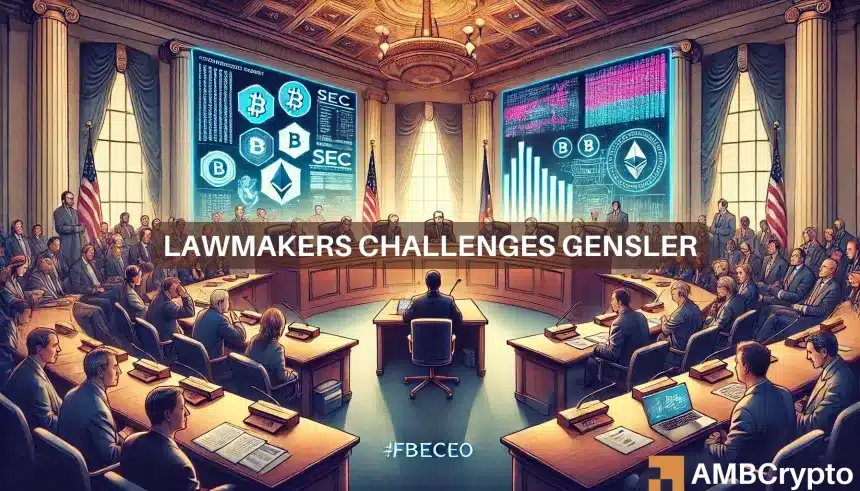SEC’s crypto regulations are ‘authoritarian whims,’ lawmakers say

- Lawmakers demanded Gensler to clarify airdrop regulations by the 30th of September.
- SEC’s regulatory approach raised concerns about stifling blockchain innovation and American involvement.
In 2024, the cryptocurrency sector faced scrutiny from the U.S. Securities and Exchange Commission (SEC), which issued Wells notices to major players like Uniswap [UNI], ConsenSys, and Robinhood, and is contemplating enforcement actions against NFT platform OpenSea.
Amid this regulatory crackdown, two Republican lawmakers are pressing SEC Chair Gary Gensler for clarity on the classification of crypto airdrops.
Gensler on check?
In a letter dated the 17th of September, Representative Tom Emmer and House Financial Services Committee Chairman Patrick McHenry have voiced their concerns, urging Gensler to address ambiguities surrounding airdrops that have surfaced in recent lawsuits.
“We write to better understand the Securities and Exchange Commission’s (SEC) consideration of the status of distributions of digital assets via ‘airdrops’.”
The letter expressed concerns over the SEC’s handling of digital asset distributions, specifically airdrops, which are crucial for encouraging participation and fostering the decentralization of blockchain networks.
The lawmakers fear that this hostile regulatory environment could prevent the realization of blockchain’s decentralization goals and inhibit American contributions to the future of internet advancements.
“Scared to death of decentralization”
Expressing further on the matter, Emmer took to X (formerly Twitter) and noted,
“They are scared to death of decentralization because it restores what this country was built on, which is by the people from the ground up.”
He further added,
“The future of the peer-to-peer digital economy cannot be left to the authoritarian whims of @GaryGensler.”
In their letter, Emmer and McHenry have given SEC Chair Gensler until the 30th of September to address five key issues regarding crypto airdrops, including their legal status under the Howey test and their distinction from rewards like credit card points.
They argue that the SEC’s restrictions are preventing Americans from benefiting fully from blockchain technology and undermining their role in shaping its future, thus failing to align with American values and interests.
What lies ahead for Gensler?
Given Chair Gensler’s approach to cryptocurrency, where he has expressed frustration over the disproportionately high volume of crypto-related inquiries compared to those in traditional finance, stating
“Crypto is a small piece of our overall markets. But, it’s an outsized piece of the scams and frauds and problems in the markets.”
It remains to be seen how Gensler will address these questions and whether he will continue to lead the SEC into 2025.






